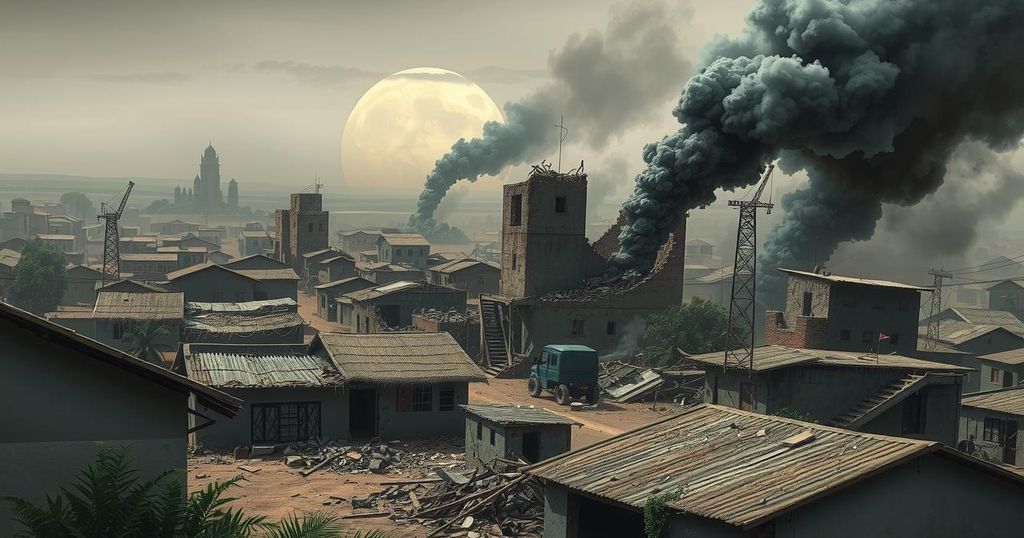Airstrike in South Sudan’s Nasir Claims 19 Lives Amid Rising Tensions

An airstrike by South Sudan’s air force killed at least 19 in Nasir, with the attack following the withdrawal of government forces amid violent clashes with the White Army. This situation could escalate tensions reminiscent of the prior civil war. Community leaders reported severe casualties, and the involvement of Ugandan troops for support adds to the regional complexities.
On March 7, at least 19 individuals lost their lives in an airstrike conducted by South Sudan’s air force in the eastern town of Nasir. This devastating attack followed shortly after government forces had withdrawn from the area amid fierce confrontations with the ethnic militia known as the White Army. These tensions could potentially respark the devastating civil war that took place between 2013 and 2018, resulting in countless casualties.
The clashes in Nasir were primarily between the national army and the White Army, made up largely of Nuer youths. Accusations have been made against the party of First Vice President Riek Machar, alleging collaboration with the White Army during previous conflicts against President Salva Kiir’s predominantly ethnic Dinka troops. Machar’s party, however, has firmly denied such involvement.
In a related incident, a UN helicopter faced an attack while attempting to evacuate South Sudanese soldiers from Nasir, leading to the deaths of approximately 27 soldiers, including a general. The government officially confirmed the airstrike on Nasir.
Kang Wan, a community leader, reported that the bombardment occurred late on Sunday night, resulting in 15 immediate deaths and several others who later succumbed to injuries. A resident noted witnessing 16 corpses and mentioned that three others had passed away due to severe burns, with Wan emphasizing, “All of them they got burned, everything got burned.”
Doctors Without Borders (Medecins Sans Frontieres) disclosed that their hospital in nearby Ulang treated three wounded patients from Nasir on Monday morning, of which two unfortunately died due to severe burn injuries. The local commissioner, James Gatluak Lew, suggested that the attack by South Sudan’s armed forces might be retaliation for the helicopter incident.
In a broader context, Uganda had recently announced the deployment of special forces to South Sudan’s capital, Juba, citing the need for security. While the South Sudanese government initially denied the presence of Ugandan troops, Information Minister Michael Makuei later acknowledged that some Ugandan units were indeed present to support the national army as needed.
The recent airstrike in Nasir, South Sudan, which resulted in the deaths of at least 19 individuals, highlights the continuing instability in the region following a period of intense conflict between government forces and ethnic militias. Accusations have escalated against political figures associated with the ongoing violence, further straining the fragile situation. The involvement of external military support from Uganda raises questions about regional stability and security as South Sudan navigates this turbulent chapter in its history.
Original Source: www.straitstimes.com








